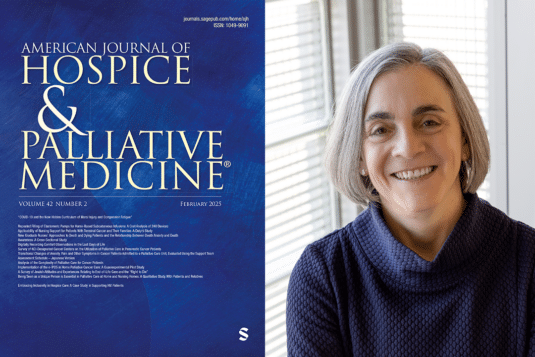Can AI chatbots help patients make sense of their medical notes? This first-of-its-kind study published in JAMIA Open finds that with the right prompt, large language models may become powerful partners in understanding complex health information.
Peer Reviewed
Repeated Access to Patient Portal While Awaiting Test Results and Patient-Initiated Messaging
A new study found that patients often refresh the portal while awaiting test results—especially for routine tests. This behavior is linked to increased messaging, suggesting that individual worry may drive communication more than the test itself.
Identifying, Engaging, and Supporting Care Partners in Clinical Settings: Protocol for a Patient Portal–Based Intervention
This study aimed to implement a novel patient portal–based intervention to identify, engage, and support care partners in clinical settings. Early results suggest that the intervention could be an easily scalable and adaptable method of identifying and supporting care partners in clinical settings.
A Multisite Demonstration of Shared Access to Older Adults’ Patient Portals
In this quality improvement study of 16,005 patients from 3 diverse US sites, new shared access registration was unchanged; however, use of shared access functionality among registered care partners increased. Care partners logged in more frequently, viewed more laboratory results and clinical notes, and scheduled more visits after the demonstration.
Patients and families reading their discharge summaries: A cross-sectional analysis of benefits, concerns, and implications
Rapidly spreading information transparency could transform how patients engage in care and communicate with clinicians. Patients and families report benefits from reading discharge summaries; however, over a quarter reported a concern.
Is Routine Discharge Enough? Needs and Perceptions Regarding Discharge and Readmission of Palliative Care Patients and Caregivers
This study investigated the hospital discharge process for palliative care patients and their caregivers, focusing on its patient-centeredness, discharge readiness, and links to readmissions.
Guidelines for Patient-Centered Documentation in the Era of Open Notes: A Qualitative Study
This study by Vanka, et al, presents 10 guidelines for patient-centered medical documentation, emphasizing respect, clarity, and inclusivity in clinical notes. These principles aim to empower patients, improve trust, and enhance medical education on open notes practices.
Clinician and patient perspectives on the exchange of sensitive social determinants of health information
The findings of this study suggest that a multifaceted approach, taking both patients’ and clinicians’ concerns and preferences into account, is needed to improve the collection, documentation, and exchange of SDOH data to benefit both direct patient care and broader efforts at improving public health.
Study: Leveraging a patient portal to help patients formulate their healthcare goals
This study tested self-directed tools for older adults with chronic conditions to identify healthcare priorities. Website engagement was low, but 26% completed an Epic previsit questionnaire. Most found it helpful, and physicians noted it facilitated end-of-life care discussions.
Shared access to adults’ patient portals: A secret shopper exercise
Our secret shopper exercise unveiled noteworthy variability in the experiences of 18 individuals attempting to grant or receive shared access to the patient portal, highlighting multiple barriers and facilitators to shared access. The findings underscore the imperative for cross- and intra-organizational collaboration aimed at learning from the diverse experiences of patients, care partners, clinicians, and staff, and disseminating best practices.













